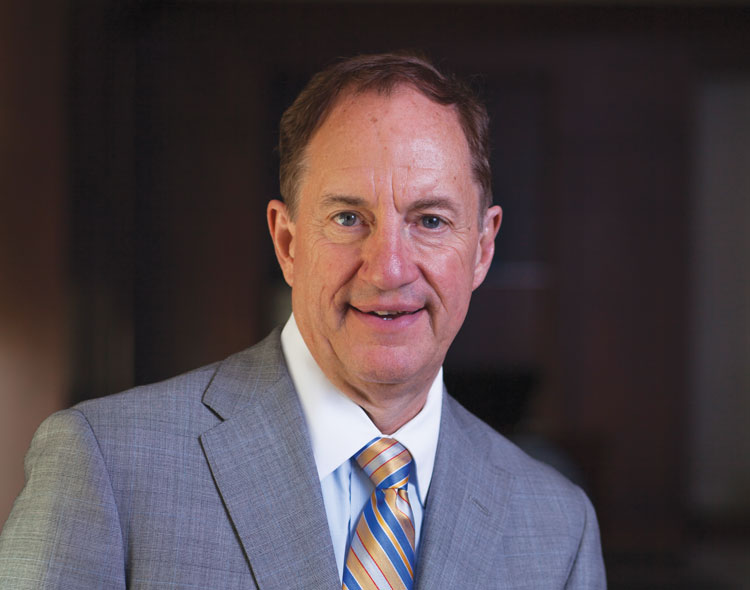
Photo courtesy of Rodney Smolla.
He left the law school within a year, after being tapped to serve as president of Furman University. At the time, the law school’s experiential learning program for 3Ls had been in place for approximately one year.
“It all worked out. People were very excited about it, and we implemented it. Washington and Lee continued with it, and it’s still a very important aspect of the law school,” says Smolla, 66. He left Furman in 2013 and is now the dean at Widener University Delaware Law School, which he says has also adopted a strong emphasis on experiential learning.
The Washington and Lee program for third-year law students was designed with a heavy emphasis on professionalism, including ethics, civility in practice, civic engagement and pro bono service. Also, law firms that hired graduates helped with the program. The law school was good at teaching students to think like lawyers, Smolla said in his 2009 interview with the ABA Journal, but had a way to go in showing them how to be like lawyers, in terms of showing judgment, interacting with judges and counseling clients.
For the first two years, participation was voluntary for students, and in 2009, 50 percent of Washington and Lee’s third-year class signed up. The program became mandatory in 2012.
Many law schools opened clinics in the 1970s and 1980s, according to Smolla, but when Washington and Lee revised its third-year coursework in 2009, legal education for the most part had been unchanged for the past century. People had long thought that it was time for change, regardless of whether they were for or against experiential learning, says Smolla, who also served as dean at the University of Richmond Law School before he was at Washington and Lee.
“It was driven by a sense of frustration, that three years of law school were not being deployed in the most constructive way,” he says. “Most people felt very good about the first year of law school, with an immersion in basic courses. People felt reasonably comfortable with the second year, but after that, it kind of gets old. Students were just taking specialty courses, often times quite randomly, and that was not helping students gain the competency they needed to be successful lawyers.”
He adds that 10 years ago, there was still a significant amount of discussion on whether experiential learning was a good idea for legal education, and if so, how much.
“The intensity of that debate has more or less gone, and now experiential learning is pretty much accepted by everybody,” Smolla says.


Rodney Smolla
Rodney Smolla is dean and a law professor at the Delaware Law School of Widener University in Wilmington, Delaware. He has published more than 100 articles in law reviews and other publications. He has been chairman of the Association of American Law Schools’ Section on Defamation and Privacy Law, chairman of the Association of American Law Schools’ Section on Mass Communications Law, a member of the ABA’s advisory committee to the Forum on Mass Communications Law, and a member of the First Amendment advisory board to the Media Institute. Smolla is admitted to the Illinois, Virginia, and Delaware bars.